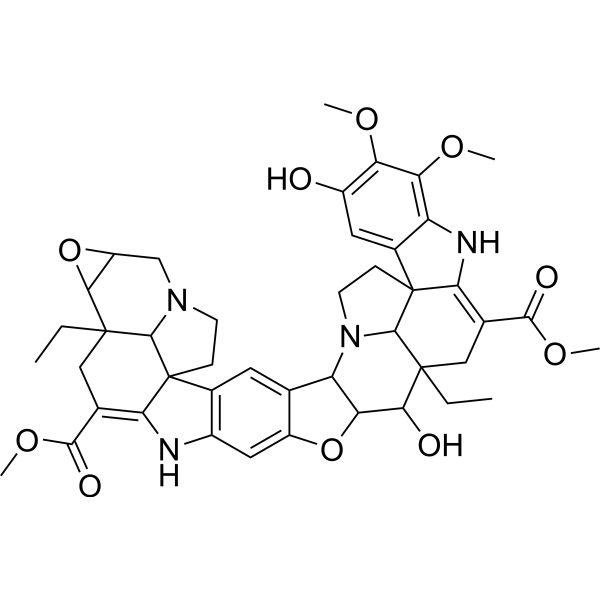Home
Products
Conophylline



| Product Name | Conophylline |
| Price: | Inquiry |
| Catalog No.: | CN02205 |
| CAS No.: | 142741-24-0 |
| Molecular Formula: | C44H50N4O10 |
| Molecular Weight: | 794.9 g/mol |
| Purity: | >=98% |
| Type of Compound: | Alkaloids |
| Physical Desc.: | Powder |
| Source: | The leaves of Tabernaemontana divaricata |
| Solvent: | Chloroform, Dichloromethane, Ethyl Acetate, DMSO, Acetone, etc. |
| SMILES: |
| Contact us | |
|---|---|
| First Name: | |
| Last Name: | |
| E-mail: | |
| Question: | |
| Description | Conophylline is a vinca alkaloid extracted from leaves of a tropical plant Ervatamia microphylla. Conophylline is a differentiation inducer of for pancreatic cells. Conophylline suppresses HSC and induces apoptosis[1][2]. |
| In Vitro | Conophylline (100 ng/ml; 48 hours) reproduces differentiationinducing activity but not apoptosis-inducing activity of activin[1]. Conophylline (100 ng/ml; 72 hours) exhibits the differentiation-inducing activity in AR42J cells and converts these cells to endocrine cells[1]. Conophylline increases the expression of neurogenin-3 by activating p38 mitogen-activated protein kinase to induce differentiation of AR42J cells[1]. Conophylline reduces the expression of α-SMA and collagen-1 in rat HSC and Lx-2 cells[2]. Conophylline inhibits DNA synthesis induced by serum[2]. Conophylline also promots activation of caspase-3 and induces apoptosis in Lx-2 Cells[2]. Apoptosis Analysis[2] Cell Line: Lx-2 Cells Concentration: 12 hours Incubation Time: 0.1 μg/ml Result: Induced apoptosis Western Blot Analysis[2] Cell Line: Lx-2 cells Concentration: 0.1 μg/ml Incubation Time: 15 minutes, 30 minutes, 60 minutes, 120 minutes Result: Increased phospho-JNK. |
| In Vivo | Conophylline (0.9 mg/kg; p.o.; daily; for 12 weeks) attenuates formation of the liver fibrosis induced by TAA in vivo[2]. Animal Model: Sprague-Dawley rats (70-80 g)[2] Dosage: 0.9 mg/kg Administration: Oral administration; daily; for 12 weeks Result: Attenuated formation of the liver fibrosis induced by TAA. |
| Density | 1.5±0.1 g/cm3 |
| Exact Mass | 794.352722 |
| PSA | 163.82000 |
| LogP | 4.49 |